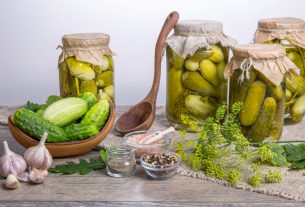While flu season generally peaks between December and February, it can last as late as May. And given how wacky the weather has been in certain areas of the country, there are probably millions of people still at risk of developing the flu. While most people can weather the flu on their own, or get exposed to it and suffer no severe symptoms, the flu can be deadly. At the high range of estimates, US officials estimate that up to 80,000 people in the US died of the flu last year. That makes it all the more important for individuals to take every step they can to protect themselves against the flu and ensure that they’re able to fight it off.
Recent research has indicated that a common food additive can potentially prevent the body from being able to fight off the flu. Even worse, the additive is often not labeled on food product packaging, so most people don’t even know that they’re consuming it.
The compound, tert-Butylhydroquinone (TBHQ) is often used as a preservative to stabilize fats, particularly unsaturated vegetable oils and animal fats. It is often used in frozen foods and processed foods, and may also be labeled E319.
Researchers fed mice a diet with added TBHQ and found that those mice suffered from a weakened immune response to the influenza virus compared to those mice that didn’t have TBHQ in their diet. The TBHQ suppressed the ability of T cells to fight off the influenza infection. When those TBHQ-fed mice were reinfected with another strain of the flu virus, those mice ended up sicker for a longer period of time, leading to speculation that TBHQ also interferes with the body’s ability to remember how to fight diseases.
Researchers added TBHQ in amounts that were supposed to equal an equivalent amount per bodyweight in human beings, although it is difficult to know just how much TBHQ most people consume. Because TBHQ is unlabeled, it’s possible that some people may consume up to twice as much TBHQ as is considered generally safe. So the next time you reach for that bag of potato chips or that box of fish sticks, you might think twice. Do some research to see whether the foods that you eat are treated with TBHQ, and do whatever you need to in order to avoid it.
This article was originally posted on Red Tea News.





